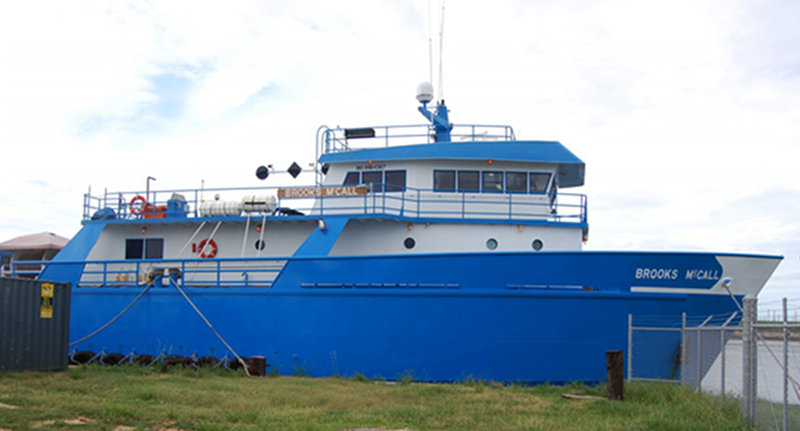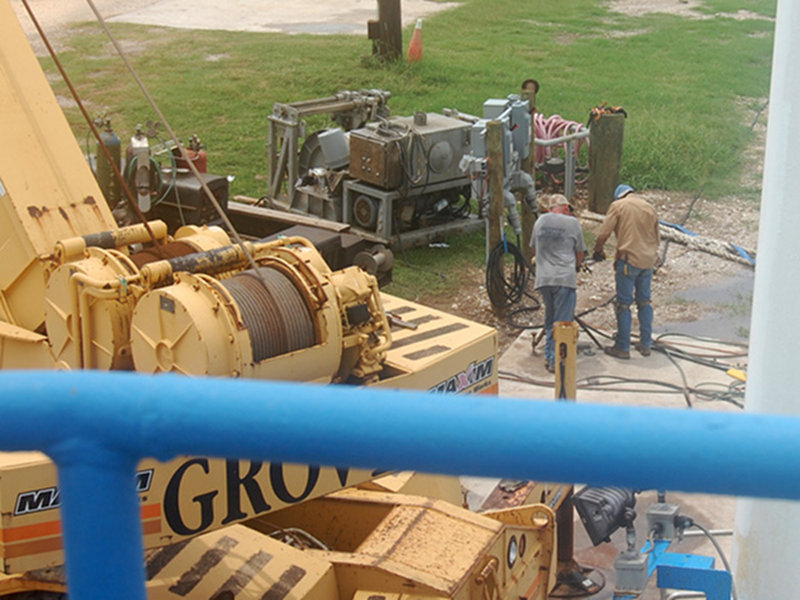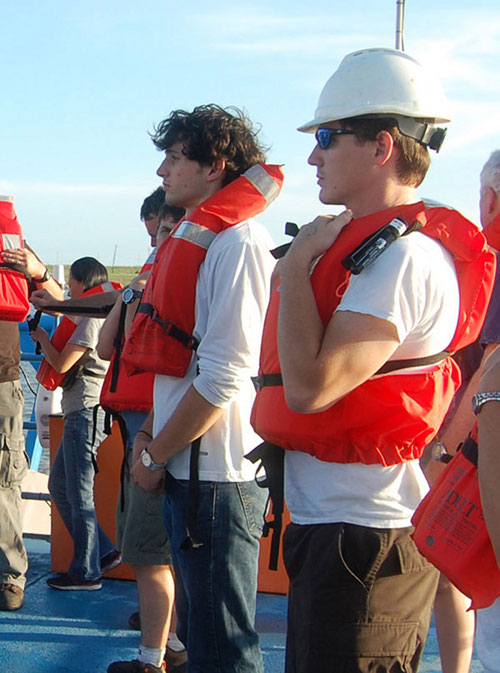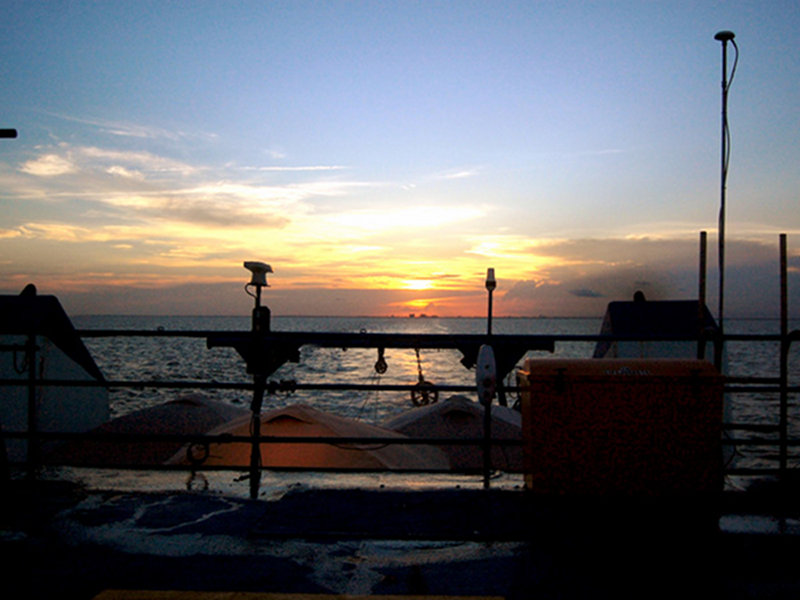
By Emily Crum, Web Coordinator - NOAA National Ocean Service
July 13, 2012

The R/V Brooks McCall dockside in Freeport, Texas. Image courtesy of Lophelia II 2012 Expedition, NOAA-OER/BOEM. Download larger version (jpg, 600 MB).
Contending with Mother Nature can be one of the greatest challenges when conducting science at sea – when the weather isn’t in your favor, it can throw the whole mission off schedule.

As with any heavy equipment operations, a heavy lift crane and welding activities must happen in order to ensure that the Kraken2 is safely and securely aboard the ship. Image courtesy of Lophelia II 2012 Expedition, NOAA-OER/BOEM. Download larger version (jpg, 1.8 MB).
Case in point: The original plan for the Lophelia II 2012 expedition was to leave Freeport, Texas, on Thursday afternoon. As of Friday afternoon, the R/V Brooks McCall remained moored to the dock. It’s now Saturday evening and we are just getting underway. The delay? We can blame it on the rain.
Central to the expedition is the Kraken2, a remotely operated vehicle (ROV) that will allow scientists to explore and collect video and samples along the oil and gas platforms we are scheduled to visit. Getting the ROV on the ship and secured, as with any operation involving heavy equipment, requires heavy crane lifting and welding.
None of this can happen when it is raining or storming.

The science party and ship crew don their life vests during an abandon ship drill. Image courtesy of Lophelia II 2012 Expedition, NOAA-OER/BOEM. Download larger version (jpg, 1.1 MB).
Southeast Texas, an area that averages about one inch of rain per week this time of year and suffered what was described as an “exceptional” drought last summer, has received more than 10 inches of rainfall since Tuesday. This heavy rain, combined with lightning that makes it unsafe to be on deck, has significantly delayed welding and crane operations.
As much as everyone wants to get going with the expedition, preparation had to be done properly and completely. So we waited.

Freeport, Texas, grows ever smaller as we are finally underway, heading towards our first platform in the Gulf of Mexico. Image courtesy of Lophelia II 2012 Expedition, NOAA-OER/BOEM. Download larger version (jpg, 1.5 MB).
But we weren’t waiting idly. While still dockside, scientists unpacked and secured gear, set up stations, decided on procedures to consistently collect and label samples. Discussions occurred about assignments, priorities, and processes. Activities stopped to load groceries onto the ship – more than enough to feed 30 people for ten days.
A vessel orientation and pre-kickoff safety meeting ensured we know important things such as where to go in case of emergency and how to properly don a life vest and evacuate ship. We learned where on the ship we are allowed to go (or not), the location of safety equipment, and other information required to keep us safe while aboard the vessel.
And, as we are now underway, cruise chief scientist Jay Lunden continues to refine the cruise plan to accommodate the changes in our schedule, to maximize the value of the science collected in a now much shorter amount of time.